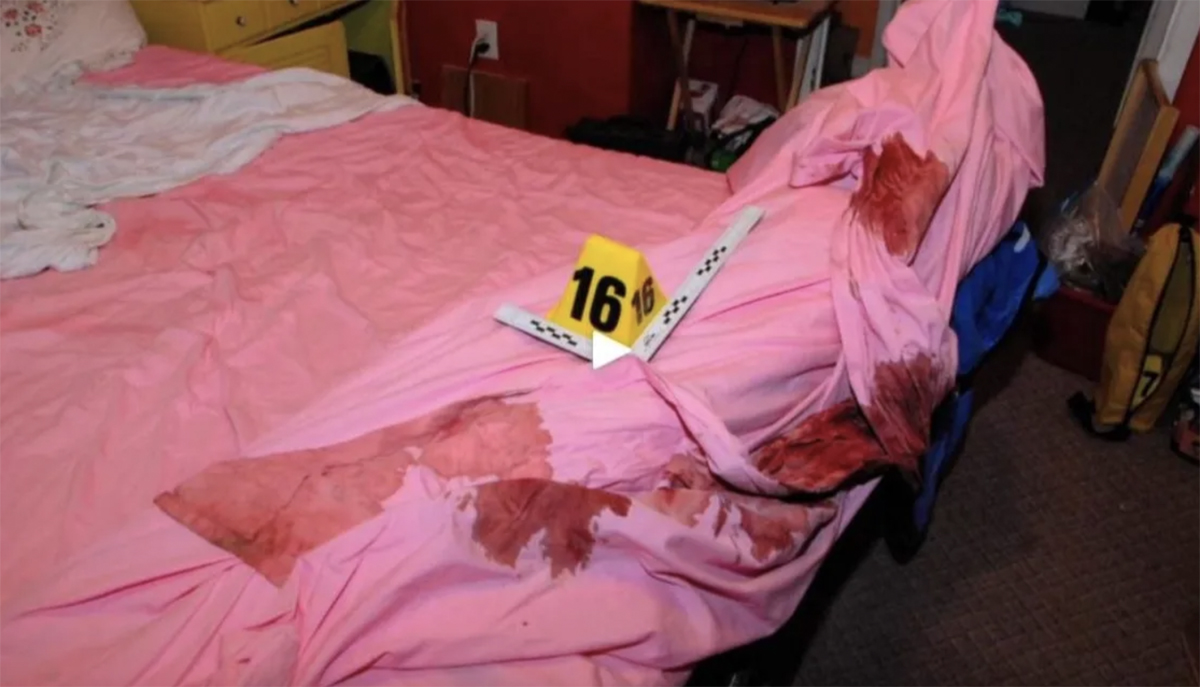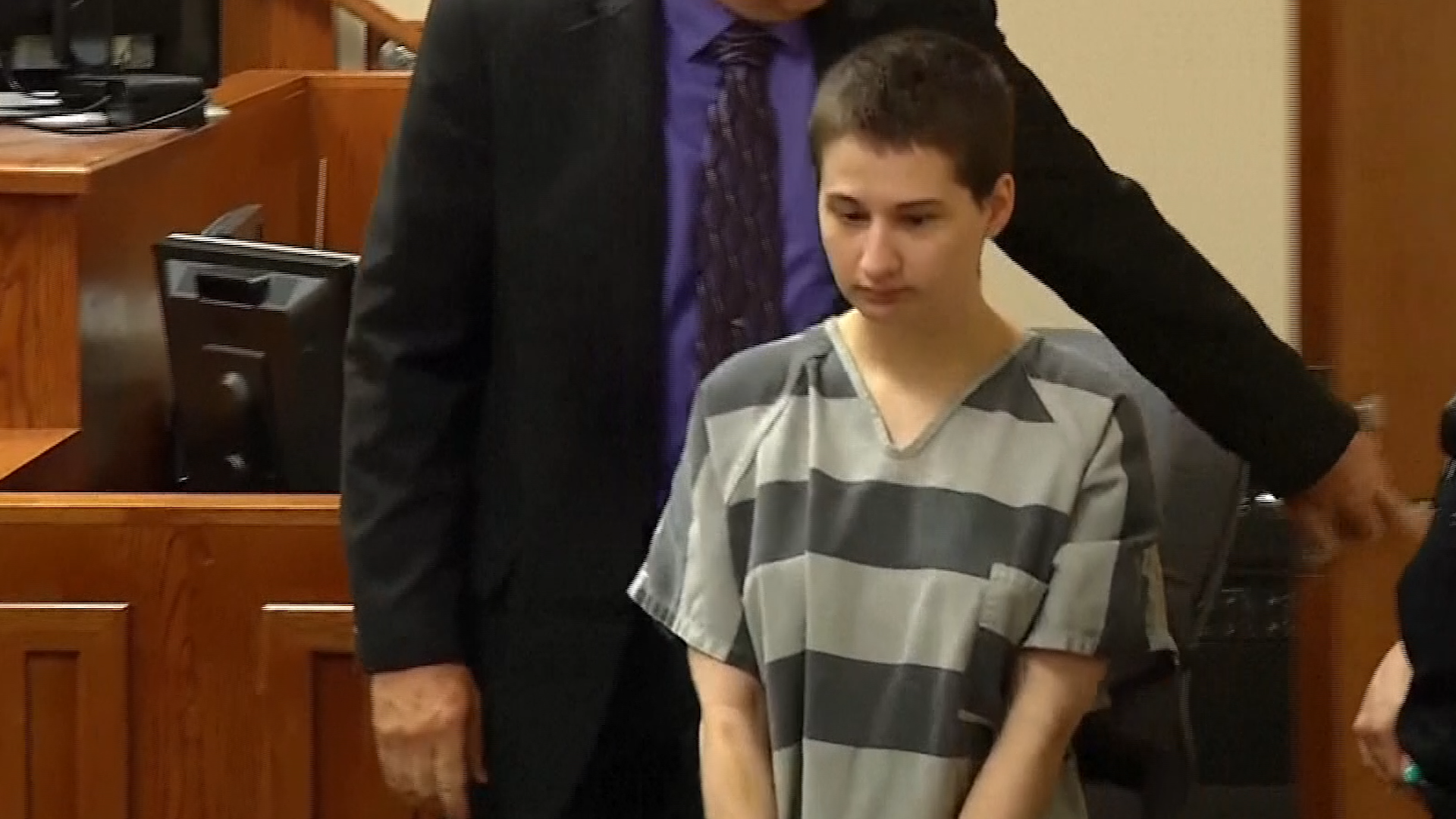When you hear the name Gypsy Rose Blanchard, it’s hard not to be drawn into one of the most bizarre crime stories of our time. This case isn’t just about a crime scene—it’s about deception, manipulation, and the dark side of human relationships. Gypsy Rose Blanchard’s story is a chilling reminder of how far people can go when their lives are built on lies. So, buckle up, because we’re diving deep into the world of Gypsy Rose, where truth is stranger than fiction.
Picture this: a young woman who spent her life confined to a wheelchair, suffering from illnesses that kept her away from the world. But as the story unfolds, it turns out that everything wasn’t what it seemed. Gypsy Rose Blanchard’s crime scene wasn’t just about a murder—it was about uncovering years of manipulation and abuse that led to a shocking betrayal.
This article isn’t just about the crime scene; it’s about the people involved, the motives, and the psychological thriller that played out in real life. If you’re ready to explore the dark corners of this case, let’s get started. Grab a coffee, sit back, and let’s unravel the mystery together.
Read also:Austin Mcbroom Ethnicity Unpacking The Roots And Background
Table of Contents
- Gypsy Rose Blanchard: A Brief Biography
- Early Life and Illness
- The Deception Unveiled
- Gypsy Rose Blanchard Crime Scene: What Happened?
- The Toxic Relationship Between Gypsy and Her Mother
- What Was the Motive Behind the Crime?
- The Trial: Key Details and Verdict
- Psychological Analysis of Gypsy Rose Blanchard
- The Impact on Society and True Crime Fans
- Conclusion: Lessons Learned from the Gypsy Rose Blanchard Crime Scene
Gypsy Rose Blanchard: A Brief Biography
Gypsy Rose Blanchard’s life has been the subject of countless headlines and documentaries. Born on February 11, 1991, in Springfield, Missouri, Gypsy grew up in a world defined by illness and isolation. Her mother, Debra Blanchard, claimed that Gypsy suffered from a range of severe medical conditions, including muscular dystrophy, leukemia, and more. These alleged illnesses confined Gypsy to a wheelchair and kept her out of school for most of her childhood.
But as the world would soon discover, Gypsy’s life was built on a foundation of lies. The truth came to light in 2015 when Debra Blanchard was found dead in their home. Gypsy and her then-boyfriend, Nicholas Godejohn, were arrested and charged with her murder. The case shocked the nation and sparked a wave of interest in the darker side of human relationships.
Gypsy Rose Blanchard: Personal Information
| Full Name | Gypsy Rose Blanchard |
|---|---|
| Date of Birth | February 11, 1991 |
| Place of Birth | Springfield, Missouri |
| Occupation | None (claimed to be too ill to work) |
| Known For | Being involved in the murder of her mother, Debra Blanchard |
Early Life and Illness
Gypsy Rose Blanchard’s early life was marked by a series of alleged medical conditions that kept her isolated from the outside world. Her mother, Debra, claimed that Gypsy suffered from a rare form of muscular dystrophy, among other illnesses. As a result, Gypsy spent most of her childhood in a wheelchair, relying on her mother for everything.
Debra homeschooled Gypsy and shielded her from the world, claiming that her illnesses made it impossible for her to attend school or interact with other children. This isolation created a world where Gypsy’s reality was shaped entirely by her mother’s narrative. But as we’ll see later, this narrative was far from the truth.
The Deception Unveiled
One of the most shocking aspects of the Gypsy Rose Blanchard case is the level of deception involved. It turns out that many of the illnesses Gypsy supposedly suffered from were either exaggerated or completely fabricated by her mother. Debra Blanchard manipulated doctors, hospitals, and even Gypsy herself to maintain this elaborate lie.
But why would someone go to such lengths? Experts believe that Debra suffered from a condition known as Munchausen syndrome by proxy, where a caregiver fabricates or induces illness in someone under their care. This condition often stems from a desire for attention and sympathy from others. In Debra’s case, the attention she received from Gypsy’s alleged illnesses became an addiction she couldn’t break.
Read also:Why Did Jon Lovett And Ronan Farrow Break Up The Untold Story
Gypsy Rose Blanchard Crime Scene: What Happened?
The crime scene that shocked the nation occurred on June 10, 2015, in the Blanchard family home. Debra Blanchard was found dead in her bed, stabbed multiple times. The investigation quickly turned to Gypsy and her boyfriend, Nicholas Godejohn, who were both arrested and charged with her murder.
The details of the crime scene paint a picture of a carefully planned murder. Godejohn allegedly broke into the house while Debra was asleep and stabbed her with a knife. Gypsy reportedly helped plan the murder and provided Godejohn with access to the house. The motive? Freedom. Gypsy claimed that she couldn’t live under her mother’s control any longer and saw murder as the only way out.
Key Evidence at the Crime Scene
- Multiple stab wounds on Debra Blanchard’s body
- A knife found at the scene with Godejohn’s fingerprints
- Surveillance footage showing Godejohn entering and leaving the house
- Text messages between Gypsy and Godejohn discussing the plan
The Toxic Relationship Between Gypsy and Her Mother
The relationship between Gypsy Rose Blanchard and her mother, Debra, was anything but normal. Debra’s control over Gypsy’s life was absolute, dictating everything from her medical treatments to her social interactions. This level of control created a toxic dynamic where Gypsy felt trapped and powerless.
Experts believe that this toxic relationship was a key factor in Gypsy’s decision to participate in her mother’s murder. Years of manipulation and abuse had left Gypsy feeling like she had no other choice. The case highlights the dangers of toxic relationships and the long-term effects they can have on mental health.
What Was the Motive Behind the Crime?
The motive behind the Gypsy Rose Blanchard crime scene is one of the most debated aspects of the case. While Gypsy claimed that she was seeking freedom from her mother’s control, others have suggested that there may have been other factors at play.
Some experts believe that Gypsy was influenced by her boyfriend, Nicholas Godejohn, who reportedly encouraged her to take drastic action. Others point to the years of manipulation and abuse that Gypsy endured at the hands of her mother. Regardless of the exact motive, it’s clear that the crime was the result of a complex web of factors that ultimately led to tragedy.
The Trial: Key Details and Verdict
The trial of Gypsy Rose Blanchard and Nicholas Godejohn captured the attention of the nation. Both defendants faced charges of first-degree murder, and the evidence against them was overwhelming. Text messages, surveillance footage, and forensic evidence all pointed to their guilt.
In 2016, Nicholas Godejohn was convicted of first-degree murder and sentenced to life in prison without the possibility of parole. Gypsy, on the other hand, was convicted of second-degree murder and sentenced to 10 years in prison. The verdicts brought a sense of closure to a case that had captivated the public for years.
Key Evidence Used in the Trial
- Text messages between Gypsy and Godejohn discussing the murder plan
- Surveillance footage showing Godejohn entering and leaving the house
- Forensic evidence linking Godejohn to the murder weapon
- Testimony from medical experts about Debra Blanchard’s manipulation of Gypsy’s illnesses
Psychological Analysis of Gypsy Rose Blanchard
Understanding the psychology behind the Gypsy Rose Blanchard crime scene is crucial to grasping the full scope of the case. Gypsy’s involvement in her mother’s murder raises questions about her mental state and the impact of years of manipulation and abuse.
Experts believe that Gypsy may have suffered from Stockholm syndrome, where victims develop a bond with their abusers. This condition could explain why Gypsy felt trapped and powerless, even as she participated in her mother’s murder. The case highlights the importance of understanding the psychological effects of abuse and manipulation.
The Impact on Society and True Crime Fans
The Gypsy Rose Blanchard crime scene has had a lasting impact on society and the true crime genre. The case has been the subject of numerous documentaries, books, and TV shows, captivating audiences around the world. It has also sparked important conversations about mental health, abuse, and the dangers of toxic relationships.
For true crime fans, the case serves as a reminder that even the most bizarre stories can have real-world consequences. It challenges us to look beyond the headlines and understand the complex factors that contribute to such tragedies. The case of Gypsy Rose Blanchard will undoubtedly continue to be studied and discussed for years to come.
Conclusion: Lessons Learned from the Gypsy Rose Blanchard Crime Scene
In conclusion, the Gypsy Rose Blanchard crime scene is more than just a murder case—it’s a cautionary tale about the dangers of manipulation and abuse. Gypsy’s story reminds us that even the most seemingly innocent lives can be built on lies and deception. The case also highlights the importance of mental health awareness and the need to recognize the signs of toxic relationships.
As we reflect on this shocking true story, let’s take a moment to honor Debra Blanchard’s memory and learn from the lessons it offers. If you’re interested in exploring more true crime stories or learning about the psychological aspects of crime, be sure to check out our other articles. And don’t forget to leave a comment or share this article with your friends. The conversation doesn’t have to end here!


